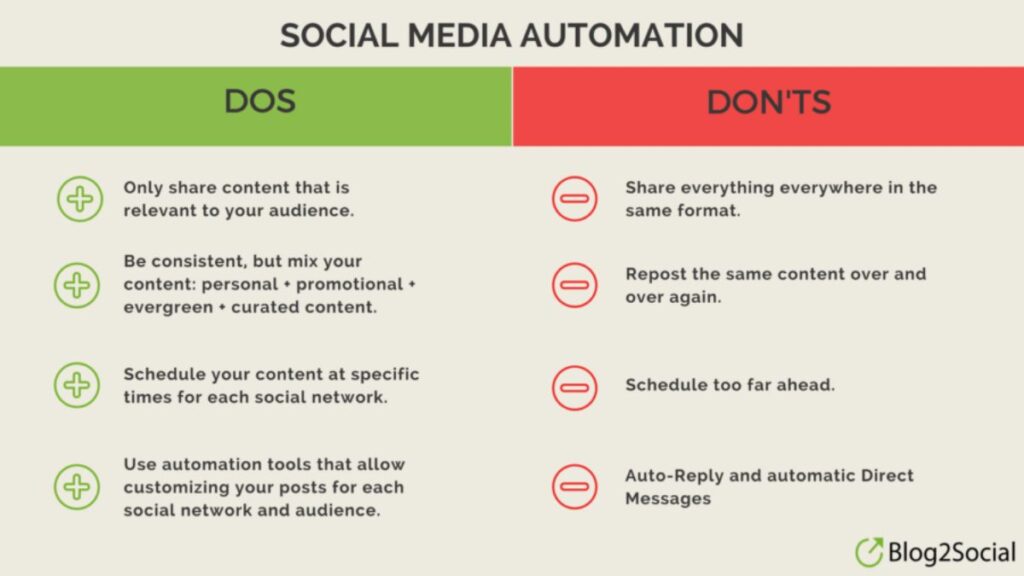In a world where digital connections often happen before in-person introductions, social media has become the modern handshake. Platforms like Instagram, Twitter, Facebook, and LinkedIn have grown to be more than just places to share photos and updates—they are venues for career networking, personal branding, activism, and even customer service. However, with these opportunities come responsibilities, as maintaining a positive online image can be as critical as nurturing an offline one. In 2024, the standards and expectations of social media etiquette have evolved with technology, societal norms, and changing perspectives on privacy and professionalism. This guide explores the essential do’s and don’ts for navigating social media in a respectful, effective way.
The Do’s of Social Media Etiquette in 2024
Let’s start with the positive actions that can enhance your online experience, build your personal brand, and foster meaningful connections.
1. Be Authentic but Mindful
In an age where authenticity is highly valued, presenting your genuine self online can help foster trust and build meaningful connections. However, authenticity doesn’t mean oversharing every detail of your life or venting impulsively about personal grievances. It’s essential to balance authenticity with mindfulness. Ask yourself whether the content you’re about to share aligns with the persona you wish to project, whether personal or professional. Authenticity also means taking responsibility for your words and actions online and avoiding the temptation to fabricate or embellish achievements, opinions, or experiences.
2. Engage with Empathy
Social media is a melting pot of diverse opinions, experiences, and emotions. Engaging with empathy involves more than just agreeing with people; it means respecting others’ viewpoints even when they differ from yours. Avoid quick judgments and consider the perspective of others before responding to posts, comments, or messages. Use emojis, clear language, and respectful responses to convey your intent genuinely. If a discussion becomes heated or confrontational, consider disengaging rather than fueling unnecessary drama.
3. Fact-Check Before Sharing
Misinformation spreads rapidly on social media, leading to potential misunderstandings, fear, or confusion. Before sharing any news or statistics, verify the information from reputable sources. This is especially critical for topics related to health, politics, or public safety. In 2024, misinformation can not only affect personal relationships but may also have legal ramifications if false information leads to harm. Being diligent in what you share enhances your credibility and promotes a more informed online community.
4. Use Proper Hashtags Wisely
Hashtags remain a powerful tool for expanding the reach of your content, but their overuse or misuse can appear spammy or unprofessional. Choose relevant and specific hashtags that directly relate to the content you are posting. While trendy or viral hashtags can increase visibility, avoid jumping on unrelated trends just for attention. In professional contexts, use industry-specific hashtags and consider creating branded tags for cohesive campaigns.
5. Prioritize Privacy and Security
As data breaches and privacy concerns grow, being proactive about privacy settings is more important than ever. Regularly review and update your privacy settings on each platform to control who can view, share, or interact with your content. Use strong, unique passwords for each platform, and be wary of connecting with unknown profiles that may pose as fake accounts or phishing schemes. Protecting your information preserves your online safety and demonstrates awareness and responsibility to your followers.
The Don’ts of Social Media Etiquette in 2024
While there are many ways to create a positive online experience, there are just as many behaviors to avoid. Here’s what you should steer clear of to maintain a respectful and productive online presence.
1. Avoid Oversharing Sensitive Information
Oversharing on social media can pose both personal and professional risks. In 2024, boundaries between public and private lives are increasingly blurred. Sharing intimate details about your relationships, health, or financial status can invite unwanted scrutiny or make you vulnerable to scams or cyberattacks. Instead, keep such discussions limited to trusted, private spaces. Similarly, resist sharing images or details about friends, family, or colleagues without their consent, as their comfort with public sharing may differ from yours.
2. Don’t Engage in “Cancel Culture”
Cancel culture—the act of withdrawing support or calling out individuals publicly for past actions—has become a prevalent, albeit controversial, trend. While holding individuals accountable is important, public shaming and instant judgment can lead to misinformation and unnecessary hostility. In 2024, try to approach conflicts or concerns privately and respectfully before resorting to public criticism. If an issue requires public accountability, ensure you have full context and consider the potential consequences for all parties involved.
3. Refrain from Using Excessive Automation
Automation tools are popular for scheduling posts or managing interactions, but overusing them can diminish the human element of social media. Auto-responses, excessive reposting, and generic comments can make your profile feel less genuine. In 2024, people appreciate real-time, thoughtful engagement. Avoid relying solely on automation, especially in conversations or customer service interactions where personalized responses are essential. Striking a balance between automation and authenticity is key to keeping your online interactions meaningful.
4. Avoid Political and Controversial Debates
While social media can be a platform for important social discussions, diving into political or controversial debates can often lead to misunderstandings or conflict. If you do choose to discuss sensitive topics, approach them with respect, be open to other perspectives, and avoid making inflammatory statements. Engaging thoughtfully can add to constructive discourse, but remember that some conversations are better suited for offline discussions, where tone and intent are clearer.
5. Don’t Chase Trends Blindly
With the rapid pace of social media, trends emerge and fade in an instant. While participating in relevant trends can be fun and engaging, blindly following every trend can dilute your brand or make your profile seem inauthentic. Evaluate each trend based on its relevance to your identity or message. Additionally, be cautious of trends that may perpetuate stereotypes or offend particular groups. Authenticity and relevance should always take precedence over short-lived popularity.
Social Media in the Workplace: Additional Do’s and Don’ts
For professionals, social media etiquette extends to workplace interactions. Here are some additional guidelines for using social media in a professional setting.
1. Do Maintain a Professional Profile
If you’re using social media for career-related purposes, ensure that your profile reflects professionalism. This doesn’t mean you have to forego personality, but avoid posting content that might raise red flags for potential employers. Update your LinkedIn regularly, keep your contact information accurate, and engage with content that aligns with your career goals. Professionalism online can help you build connections, showcase your expertise, and keep you top of mind for career opportunities.
2. Don’t Air Workplace Grievances Publicly
While it may be tempting to share frustrations about work on social media, public complaints can be detrimental to your career. Employers monitor social media, and public grievances can make you appear unprofessional or difficult to work with. If you encounter issues at work, address them through the appropriate channels, such as HR or a manager. Keeping workplace matters private demonstrates maturity and respect for your professional environment.
3. Do Network with Intent
Professional networking on platforms like LinkedIn or Twitter is valuable, but it requires thoughtful effort. Avoid sending generic connection requests or comments that seem self-serving. Instead, engage with others’ posts thoughtfully, comment on relevant industry topics, and support others’ successes. Building genuine professional connections will make you a more trusted and respected figure in your field.
4. Don’t Overpost Promotional Content
For professionals and businesses, social media can be an excellent marketing tool. However, overposting promotional content can come across as spammy and may disengage your audience. Instead, focus on creating a balanced content mix, including informational posts, personal insights, and industry news. People are more likely to interact with brands and professionals who provide value rather than solely self-promotion.
Adapting to Evolving Norms in 2024
Social media platforms evolve rapidly, and what may have been acceptable etiquette a few years ago could be seen as inappropriate or outdated today. In 2024, users are more conscious of data privacy, the impact of misinformation, and the importance of respectful online interactions. Stay adaptable, continue to learn about emerging social media norms, and refine your approach as digital landscapes shift. Remember, etiquette on social media is not about censorship; it’s about fostering an environment where everyone feels respected and engaged.
Final Thoughts: Balancing Personal Expression and Responsibility
Social media etiquette is less about limiting your self-expression and more about creating a thoughtful, respectful online presence. In 2024, the emphasis is on balancing authenticity with accountability. By practicing these do’s and don’ts, you can create a positive social media experience for yourself and your followers, ultimately contributing to a more respectful and constructive online community. After all, your digital footprint is often the first impression you make—so make it count!



